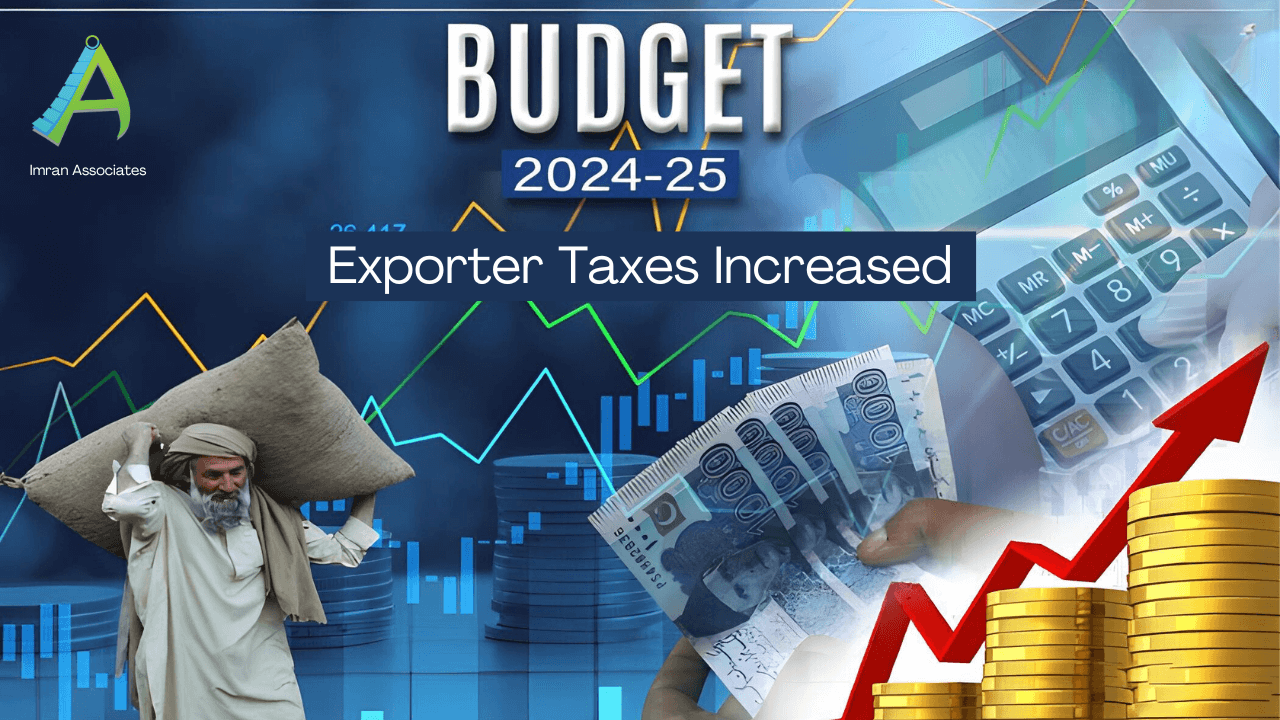The recent Budget 2024 has significantly changed the taxation landscape for exporters in Pakistan. Understanding the new Exporters Tax in Budget 2024 is essential for businesses that engage in international trade. This article delves into the major shifts in tax policies that could impact exporters, from small enterprises to large corporations. It aims to provide a comprehensive overview of the new regulations and their implications.
Final Tax Regime
Since the early 1990s, exporters have operated under a final tax framework created expressly to simplify their tax liabilities. Under this method, the tax deducted at the source was considered the ultimate discharge of responsibility. This meant that exporters didn’t have to keep extensive books of accounts for tax reasons. Instead, they were required to report their income and taxes, and no more investigations or audits were usually done.
The final tax system simplified operations for exporters, enabling them to concentrate on their primary business activities without the burden of complex accounting obligations. However, recent modifications to Budget 2024 have disturbed the current quo, raising anxiety among exporting enterprises.

Significant Changes in Tax Policy
Budget 2024 introduced significant alterations to the tax framework for exporters. These changes primarily involve transitioning from the final tax regime to a regular one, which entails stricter compliance requirements.
1. Transition to Normal Tax Regime:
The most notable change is the requirement for exporters to adhere to a regular tax regime. Previously, exporters enjoyed the benefits of a final tax system that exempted them from maintaining detailed records. Now, they must prepare and manage their books of accounts properly.
This shift signifies a paradigm change, as exporters will now face obligations similar to those of local businesses regarding record-keeping and tax reporting. The implications of this transition are profound, as exporters must adapt to a more complex and rigorous tax environment.
2. Tax Rates and Deductions:
Another significant adjustment in Budget 2024 is the alteration in tax rates. Under the previous regime, exporters had a fixed tax rate deducted at source. This rate has now been increased, doubling exporters’ tax burden.
- Increased tax rate: From 1% to 2%
- Corporate tax rate: 29%
- Potential super tax: Up to 39%
The increase in the tax rate means that exporters must now allocate a more significant portion of their revenue to meet tax obligations, impacting their overall profitability. This change is particularly concerning for small and medium-sized enterprises that need help absorbing the additional costs.
Implications for Exporters Tax
The new Exporters Tax in Budget 2024 introduces several implications that exporters must consider to ensure compliance and maintain their financial health.
Need for Proper Record-Keeping: One of the most critical implications of the changes is the necessity for exporters to maintain proper books of accounts. This requirement aligns exporters with the same standards expected of local businesses, which may be unfamiliar territory for many in the export sector.
Strategies for Adapting to Changes
To navigate the new landscape of Exporters Tax in Budget 2024, exporters must adopt proactive strategies to manage their tax obligations effectively.
Invest in Accounting Systems: Investing in robust accounting systems is crucial for exporters to maintain accurate records. Automated systems can streamline the process, ensuring all transactions are documented efficiently.
Regular Financial Reviews: Regular financial reviews will enable exporters to monitor their tax liabilities and ensure compliance with the new regulations. This practice can help identify any discrepancies early on and allow for timely corrective actions.
Conclusion
The changes introduced in the Exporters Tax in Budget 2024 represent a significant shift in the taxation landscape for exporters in Pakistan. While transitioning to a regular tax regime may pose challenges, it also allows exporters to enhance their financial management practices.
Exporters Tax can successfully navigate the new environment by understanding the implications of these changes and adopting effective strategies. Exporters need to stay informed about ongoing developments in tax policies and seek professional advice when necessary to ensure compliance and optimize their tax obligations.
In summary, the new tax landscape requires exporters to be diligent in record-keeping, compliance, and overall financial management. With the right approach, exporters can adapt to these changes and thrive in the global market.

